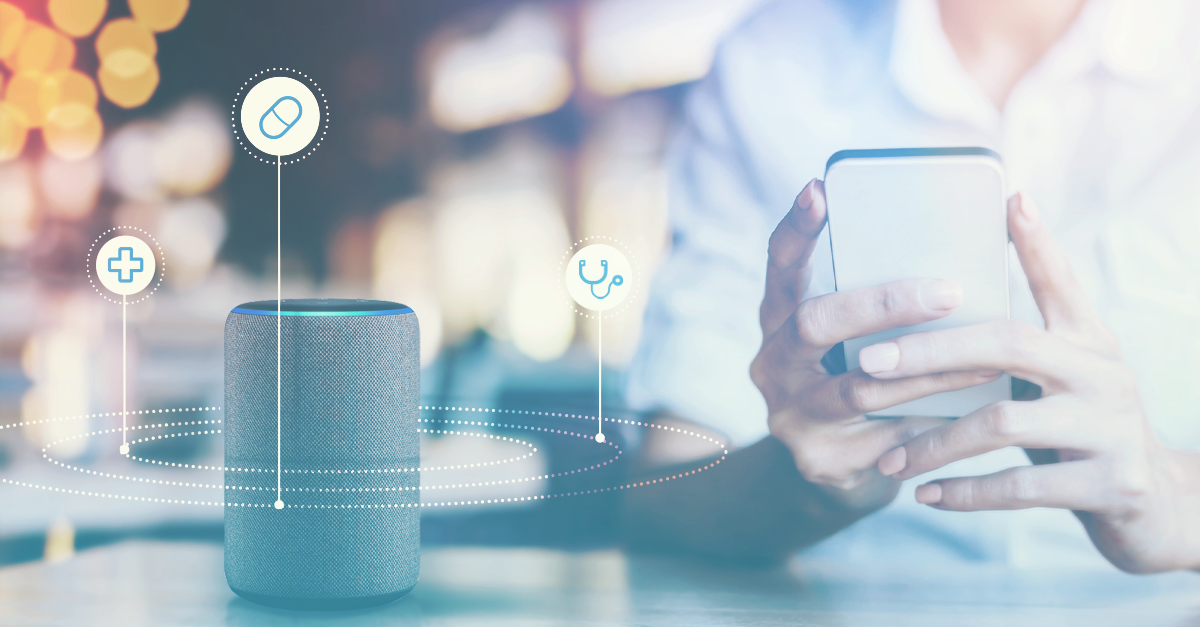The addition of machine learning and deep learning to natural language processing has the potential to transform patient interactions, from calls to health plans to remote monitoring for clinical trials.
copyright by medcitynews.com
 Few companies understand this better than Orbita, which provides voice and chatbot-powered virtual assistants for voice platforms like Amazon Alexa — the “voice” behind Amazon’s Echo devices.
Few companies understand this better than Orbita, which provides voice and chatbot-powered virtual assistants for voice platforms like Amazon Alexa — the “voice” behind Amazon’s Echo devices.
Although mainstream adoption will take time, the long-anticipated milestone of Amazon’s Alexa Skills Kit becoming HIPAA-enabled has new implications and clinical potential for improving patient engagement in remote care and monitoring applications.
Orbita SVP Strategy and GM Healthcare Providers Kristi Ebong is taking part in a panel discussion at the MedCity INVEST conference April 23-24 in Chicago called, “What Can Alexa/Voice Do for Healthcare?” It will focus on how voice is being used, who the players are and killer applications you may not know about. In addition to Ebong, panelists include John Brownstein, Chief Innovation Officer, Boston Children’s Hospital; Tal Wenderow, President & CEO, Beyond Verbal; and Alyssa Jaffee, Vice President, 7wire Ventures will serve as the moderator.
Orbita has long believed in the inevitability of virtual assistants finding their way into clinical applications. Amazon’s announcement makes this belief a reality and, according to Orbita, opens up a whole new array of applications for Alexa in healthcare. The greatest benefit of voice for healthcare, from Orbita CEO and co-founder Bill Roger’s perspective, is reducing friction in patient engagement.
As of January last year, 39 million people in the U.S. owned a smart speaker — a majority of them are powered by Amazon Alexa. A key reason for this massive adoption is because voice assistants like Alexa have gotten much better at recognizing human speech. These improvements have led to fewer people getting frustrated with voice assistants and more people engaging with this tech. Rogers also regards conversationally-enabled technologies like Alexa as a way to break down barriers that have inhibited seniors from adopting other digital healthcare technologies, like smartphone apps, in more meaningful ways.
Explaining aspects of deep learning’s impact on natural language processing, Rogers said the voice technology has the power to adapt to different accents and understand different ways of saying the same thing — something that wasn’t possible just four to five years ago.
Another area that excites Rogers is the potential for voice tech to improve medication adherence. He notes that the first 24 hours of a prescription drug being ordered for patients is critical to determine whether the patient will take the medication and its impact. Did they pick the medication up in the first place? Did they take it, but stopped? Orbita virtual assistants can simultaneously provide value to the patient while gathering important information to help with care plan adherence. […]
Thank you for reading this post, don't forget to subscribe to our AI NAVIGATOR!
read more – copyright by medcitynews.com


The addition of machine learning and deep learning to natural language processing has the potential to transform patient interactions, from calls to health plans to remote monitoring for clinical trials.
copyright by medcitynews.com
Although mainstream adoption will take time, the long-anticipated milestone of Amazon’s Alexa Skills Kit becoming HIPAA-enabled has new implications and clinical potential for improving patient engagement in remote care and monitoring applications.
Orbita SVP Strategy and GM Healthcare Providers Kristi Ebong is taking part in a panel discussion at the MedCity INVEST conference April 23-24 in Chicago called, “What Can Alexa/Voice Do for Healthcare?” It will focus on how voice is being used, who the players are and killer applications you may not know about. In addition to Ebong, panelists include John Brownstein, Chief Innovation Officer, Boston Children’s Hospital; Tal Wenderow, President & CEO, Beyond Verbal; and Alyssa Jaffee, Vice President, 7wire Ventures will serve as the moderator.
Orbita has long believed in the inevitability of virtual assistants finding their way into clinical applications. Amazon’s announcement makes this belief a reality and, according to Orbita, opens up a whole new array of applications for Alexa in healthcare. The greatest benefit of voice for healthcare, from Orbita CEO and co-founder Bill Roger’s perspective, is reducing friction in patient engagement.
As of January last year, 39 million people in the U.S. owned a smart speaker — a majority of them are powered by Amazon Alexa. A key reason for this massive adoption is because voice assistants like Alexa have gotten much better at recognizing human speech. These improvements have led to fewer people getting frustrated with voice assistants and more people engaging with this tech. Rogers also regards conversationally-enabled technologies like Alexa as a way to break down barriers that have inhibited seniors from adopting other digital healthcare technologies, like smartphone apps, in more meaningful ways.
Explaining aspects of deep learning’s impact on natural language processing, Rogers said the voice technology has the power to adapt to different accents and understand different ways of saying the same thing — something that wasn’t possible just four to five years ago.
Another area that excites Rogers is the potential for voice tech to improve medication adherence. He notes that the first 24 hours of a prescription drug being ordered for patients is critical to determine whether the patient will take the medication and its impact. Did they pick the medication up in the first place? Did they take it, but stopped? Orbita virtual assistants can simultaneously provide value to the patient while gathering important information to help with care plan adherence. […]
Thank you for reading this post, don't forget to subscribe to our AI NAVIGATOR!
read more – copyright by medcitynews.com
Share this: